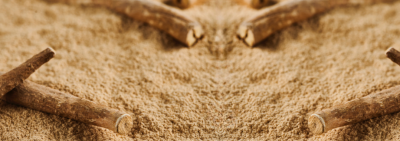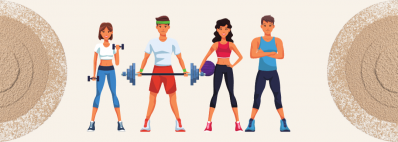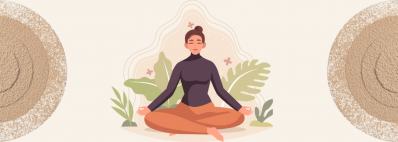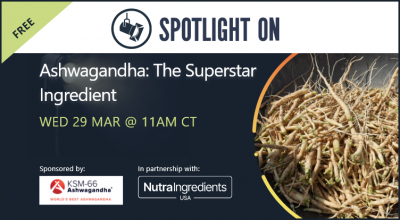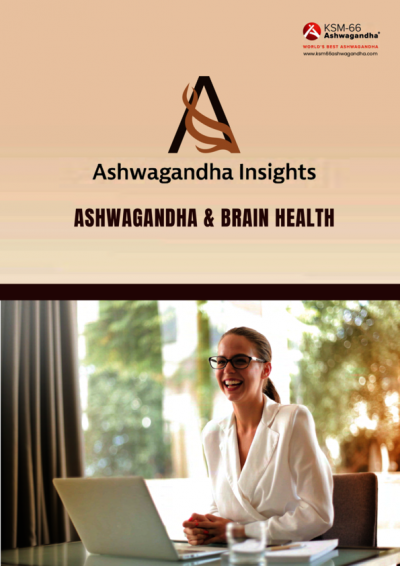Promotional Features
The World's Most Clinically Validated Ashwagandha for Cardiorespiratory Endurance
Maintaining high levels of physical activity is essential to overall health and longevity. Exercise benefits joint health, sleep, stress levels, cognitive function, mood, and numerous markers of cardiometabolic health. At the heart of an individual’s ability to remain consistent in their training and achieve high levels of performance, it is his/her cardiorespiratory endurance.
Cardiorespiratory endurance is a measurement of how well the heart, lungs, and muscles work together to keep the body active over a prolonged period of time. Essentially, it shows how effectively the heart can pump oxygen from the lungs through the myriad arteries/blood vessels to working muscles. Beyond its ability to impact your performance in the gym, on the field, or simply navigate a few flights of stairs, cardiorespiratory endurance also offers a quick litmus test for your daily health and fitness.
Building and maintaining cardiorespiratory endurance hinges on a few factors, with the primary one being consistency with your exercise regimen -- the American College for Sports Medicine (ACSM) and American Heart Association (AHA) recommends a minimum of 30 minutes of moderate intensity aerobic physical activity on five days per week, or a minimum of 20 minutes of vigorous intensity aerobic activity on three days per week.[1,2]
Other factors impacting cardiorespiratory endurance include nutrition, body mass index, sleep, and stress levels. Ashwagandha is a novel, and underutilized, option for brands and consumers alike seeking new avenues by which to improve cardiorespiratory endurance.
Ashwagandha & Cardiorespiratory Endurance
Long-known as an adaptogen with the ability to naturally increase energy, vitality, endurance and stamina as well as promote longevity and bolster the immune system without straining the body’s vital resources, ashwagandha is an ideal (if not obvious and oft-overlooked) supplement for individuals seeking increased cardiorespiratory endurance and athletic performance.
How Ashwagandha Improves Cardiorespiratory Endurance
Exercise inflicts physical, mental, emotional, and essential stress to the body. While stress is often viewed as a “negative” that is usually in the instances of chronic stress, which left unchecked can lead to increased oxidative stress, inflammation, poor sleep, and a host of other health issues. However, acute bouts of stress (such as periods of moderate-to-intense exercise) are extremely beneficial for the body, as mentioned at the outset of this article.
As an adaptogen, ashwagandha naturally increases energy, promotes relaxation, and supports weight loss via stress (cortisol) reduction. Remember, stress can be a significant factor in daily life in that it not only affects exercise performance but even an individual’s desire or motivation to merely show up and put in the work. By improving the body’s stress resiliency, ashwagandha helps the body “keep calm during the storm” that is intense exercise (or daily life for that matter).
KSM-66 Ashwagandha has been rigorously investigated and found to improve cardiorespiratory endurance in healthy adults.[3,4]
Study #1
The initial investigation into the cardio-enhancing effects of KSM-66 ashwagandha, published in AYU, included 50 healthy athletic adults, and randomized them to receive either 600mg KSM-66 Ashwagandha (300mg twice daily) or placebo daily for 12 weeks.[3]
To track the ergogenic potential of KSM-66 ashwagandha, researchers measured VO2 Max at enrollment and then after 4, 8, and 12 weeks as the participants engaged in a 20-meter shuttle run. VO2 Max measures an individual’s ability to take in, transport, and utilize oxygen, and it is generally regarded among the most valid measures of cardiorespiratory fitness. Additionally, participants also completed Quality of Life (QOL) that included metrics assessing physical health, psychological health, social relationships, and environmental factors.
At the end of the 12 weeks, individuals supplementing with KSM-66 ashwagandha experienced a 5.67% increase in VO2 Max compared to baseline measurements. Individuals receiving placebo only experienced a 1.86% improvement over the 12-week study.[3]
Individuals receiving KSM-66 also experienced significantly greater improvements in quality-of-life scores compared to those receiving placebo. Specifically, quality of life measures improved by an average of 9.46% from baseline.
Study #2
Subsequent research published in the May 2021 edition of the Journal of Ethnopharmacology again investigated the cardio-enhancing properties of KSM-66 ashwagandha in 50 healthy athletic adults. Participants were randomized into equal groups receiving either 600mg KSM-66 ashwagandha (300mg twice daily) or placebo daily for 8 weeks.[4]
Cardiorespiratory endurance was measured through the assessment of maximum oxygen consumption (VO2 max) via a 12-minute run test. Quality of life and stress management scores were also tracked via participants completing a battery of questionnaires. Researchers also estimated improvements in antioxidant status among the participants from the outset of the study and at its completion.
At the conclusion of the 8-week trial, the KSM-66 ashwagandha group experienced significantly greater increases in VO2 Max compared to the placebo group, reinforcing the findings of previous research. Improvements in quality of life and stress-management markers were also noted. Specifically, 56% of individuals receiving KSM-66 exhibited good improvement effect compared to only 28% of individuals receiving placebo.[4]
To cap off the findings, KSM-66 ashwagandha recipients exhibited higher estimated antioxidant levels, which researchers believe is a testament to the stress-relieving properties of the plant as chronically elevated stress levels are known to contribute to low-grade systemic inflammation.
By improving an individual’s response to stress, KSM-66 ashwagandha not only benefits exercise performance and cardiorespiratory endurance but also total body wellness.
Takeaway
Cardiovascular fitness is a primary marker of overall health. Unfortunately, a significant portion of the global population is overweight and unhealthy, which is often linked with poor cardiovascular health. As such, researchers are on a never-ending quest for options to improve cardiovascular health and fitness.
KSM-66 ashwagandha offers a time-tested and natural option for athletes, weekend warriors, and everyday individuals alike to improve cardiorespiratory performance, thereby supporting greater work output, calorie burning, and weight loss. Further, KSM-66 ashwagandha is also backed by numerous studies demonstrating its benefits for stress-management, hormone balance, sleep quality, and sexual wellbeing. Ashwagandha is not a stimulant, yet it offers the ability to increase energy, vigor, vitality, and well-being naturally. KSM-66 is the premier root-only ashwagandha extract on the market, backed by the highest number of studies, demonstrating numerous benefits in humans.
-----
References
- Riebe, Deborah Ph.D., FACSM, ACSM-EP; Baggish, Aaron L. M.D., FACSM; Franklin, Barry A. Ph.D., FACSM, ACSM-CEP; Jaworski, Carrie A. M.D., FACSM; Thompson, Paul D. M.D., FACSM. The New ACSM Recommendations for Preventing Cardiovascular Events at Fitness Facilities. ACSM's Health & Fitness Journal 24(6):p 10-17, 11/12 2020. | DOI: 10.1249/FIT.0000000000000620
- American Heart Association recommendations for physical activity in adults and kids (2022) www.heart.org. Available at: https://www.heart.org/en/healthy-living/fitness/fitness-basics/aha-recs-for-physical-activity-in-adults
- Choudhary B, Shetty A, Langade DG. Efficacy of Ashwagandha (Withania somnifera [L.] Dunal) in improving cardiorespiratory endurance in healthy athletic adults. Ayu 2015;36:63-8.
- Tiwari S, Gupta SK, Pathak AK. A double-blind, randomized, placebo-controlled trial on the effect of Ashwagandha (Withania somnifera dunal.) root extract in improving cardiorespiratory endurance and recovery in healthy athletic adults. J Ethnopharmacol. 2021 May 23;272:113929. doi: 10.1016/j.jep.2021.113929. Epub 2021 Feb 15. PMID: 33600918.


